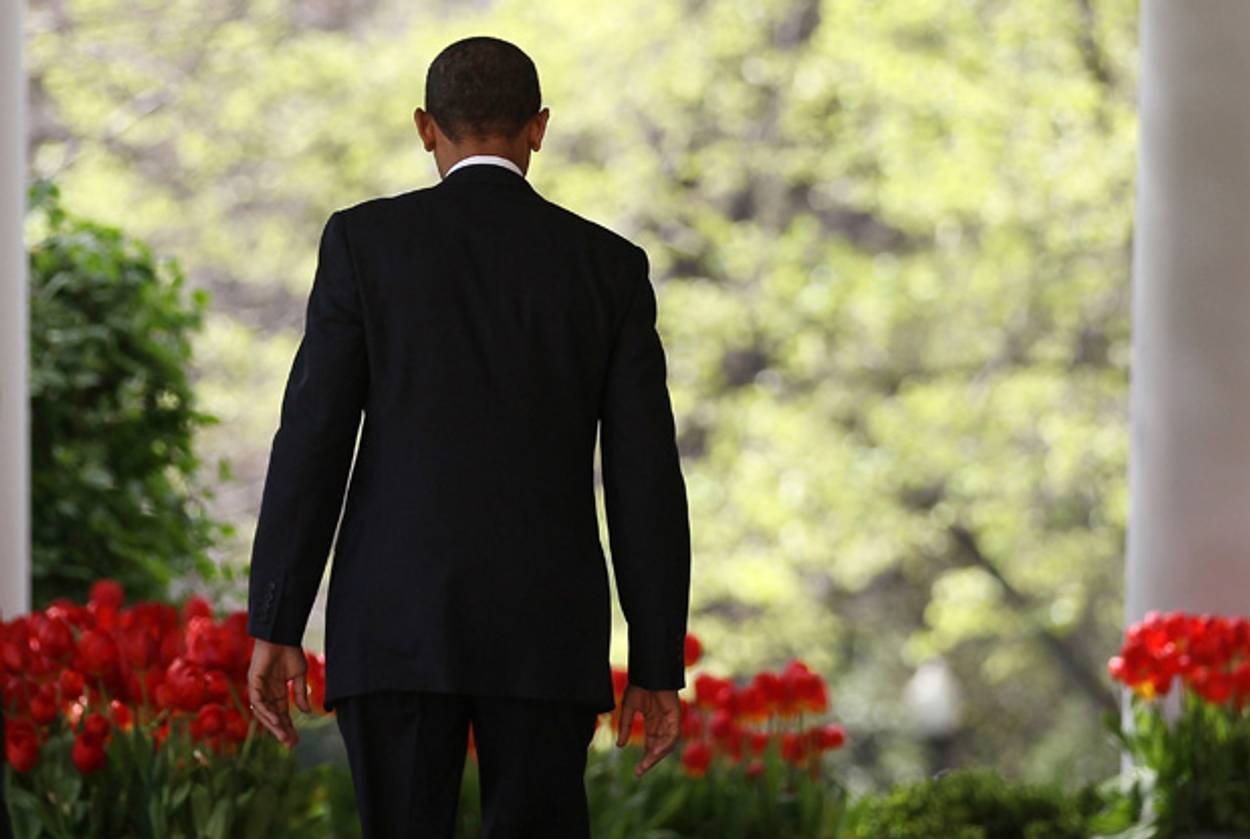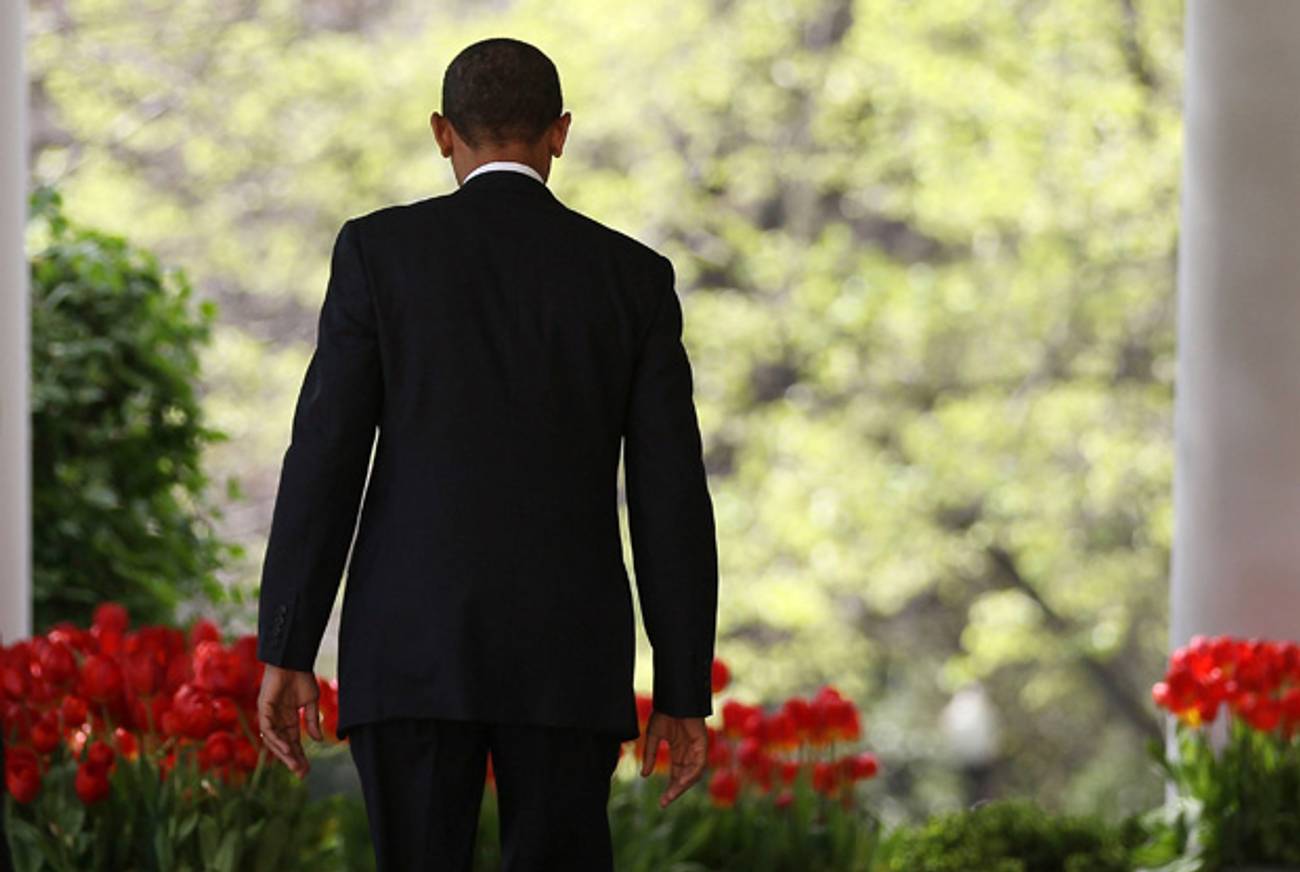On Iran, Obama’s Leaky Ship Prompts Response
Report on Azerbaijan makes further election-year hay out of debate




Over the past months, we’ve read various news reports about Iran’s clandestine nuclear program and about Israel’s and the United States’ opaque processes for deciding whether to launch a military strike on two levels: articles may supply actual information, but they most assuredly supply various parties’ arguments and perspectives. When Ronen Bergman kicked off the frenzy in the New York Times Magazine, we saw his feature for being, only slightly indirectly, the Israeli government’s opening bid—that Iran was gung-ho on building a nuclear bomb and military action was necessary. In several other articles, particularly in the Times foreign section, we have seen the U.S. military and intelligence communities advance their own perspective: that Iran’s nuclear and political situations militate against an attack (and that Israeli intelligence agrees). U.S. political leaders have transparently, explicitly argued and claimed specific things—to wit: Obama’s 45-minute interview on Iran. Still, given the onrush of reports influenced by U.S. military and intelligence emphasizing the downsides of an attack (particularly the leaked war-game that had U.S. soldiers being killed after an Israeli strike)—oh, and given that it’s an election year—there was bound to come a time when supporters of taking action would accuse the leakers of unduly influencing public opinion and, even more, the administration of inappropriately shaping military and intelligence thinking on Iran, much as the Bush administration did in the run-up to the Iraq War.
Well, it’s happened. The final catalyst was not that war game, but, first, last week’s “flexibility” gaffe, and then the Foreign Policy article from last Wednesday that revealed that Israel might use Azerbaijani soil to mount an attack on Iran, and how that makes such an attack easier and more plausible. (Azerbaijan’s defense minister denied this.)
Yesterday, Commentary’s Jonathan Tobin slammed the “leakfest,” and argued that it showed that, in fact, all Obama really wants is to push the Iran issue until after the November election. Hawkish Bush official John Bolton accused the administration of influencing intelligence (which is a really serious charge, which he probably shouldn’t make without more evidence, but whatever): “ there is top-down pressure to make the assessments come out a certain way,” he said. Rabbi David Saperstein of the Religious Action Center of Reform Judaism, not an organization known for hawkishness, cautioned, in an email blast, “To so severely damage and constrain Israel’s military options as this leak has done ill-serves the interests of all that seek to constrain Iran’s nuclear military ambitions. … if such reports are true, these leaks violate the spirit of mutual concern about the Iranian nuclear threat and commitment to co-operation.” Whether or not such reports are true, there is enough reasonable inference that it is already a talking point.
As Saperstein’s statement hints, what made the Azerbaijan story cross a line is it didn’t allegedly offer anti-attack arguments but, instead, actively impeded the possibility of an attack by revealing (maybe) a crucial part of Israel’s plans.
Quickly, the administration struck back, sending a “top White House official” to deny that it had any responsibility for the leak. Notably, this article was emailed to me by more than one Democratic source. It may be true; it is undoubtedly an important talking point.
The Azerbaijan article itself has come under criticism. In the Times of Israel, Ehud Yaari examines Azeri cooperation and finds the notion wanting in plausibility; he also attacks the author, Mark Perry, as a “veteran anti-Israel warrior.” Perry last made a big splash a couple months ago with a report that Mossad agents had pretended to be from the CIA in order to recruit an Iranian terrorist group. Perry is a former adviser to Yasser Arafat. Our own Lee Smith two years ago criticized Perry for advocating engagement with terrorist groups.
Does this prove that Perry is wrong? Of course not. What it is is one more thing to factor into our analysis as we try to grope toward the truth of the situation. Which leads us to the bad news and the good news. The bad news is that—as James Risen, who has given voice to so many anti-attack U.S. voices, reports this weekend, in an article also called out by Tobin—“The intelligence debacle on Iraq has deeply influenced the way [CIA agents] do their work, with new safeguards intended to force analysts to be more skeptical in evaluating evidence and more cautious in drawing conclusions.” He adds, “Former intelligence officials say that this shows appropriate vigilance in dealing with often murky information, while some detractors argue that the agency is not just careful but also overly skittish on Iran, reluctant to be blamed for any findings that might lead the United States to bloodshed.”
If, as some suggest, what should be neutral and empirical intelligence work is getting colored one way or the other, then that’s very bad.
The good news is that the changes and “safeguards” described are ostensibly designed to make the CIA’s conclusions not more hawkish or more dovish, but more accurate, and, John Bolton’s apparently baseless claim aside, there isn’t evidence that political leaders are exerting undue pressure. (Aha! Or so, anyway, do Risen’s pro-administration sources assert!)
The real good news is that for almost everybody, this is just sound and fury. American and Israeli leaders at the highest levels really do know what each other think, and what each others’ intelligence agencies think; and, not coincidentally, they, and not us, are the ones who actually make the decisions. This is why, as Dennis Ross and David Makovsky argued yesterday, the most important thing may well simply be keeping Israel fully in the loop, and not making Prime Minister Netanyahu or Defense Minister Barak feel that things are being done without their knowledge and consultation. If this is done, then, given the Americans’ superior military power, which creates a longer window for dealing with Iran, a strike becomes less likely.
Like this article? Sign up for our Daily Digest to get Tablet Magazine’s new content in your inbox each morning.
Ghosts of Iraq Haunting CIA in Tackling Iran [NYT]
Administration Leakfest Means Obama’s Tough Stance Is Just Talk [Commentary Contentions]
U.S. Denies Leaking Info on Israeli Access to Azeri Airbases [Ynet]
Perry-Tales in ‘Foreign Policy’ [Times of Israel]
The U.S. Can Meet Israel Halfway on Iran [WP]
Related: U.S. War Game Sees Perils of Israeli Strike Against Iran [NYT]
Talking to Terrorists [Tablet Magazine]
Earlier: How Azerbaijan Can Help Israel Attack Iran
Deciphering the Iran Chatter
U.S., Israel Mistrust on Iran Paves Way to Attack
Will Obama’s ‘Flexibility’ Gaffe Affect Israel?
Marc Tracy is a staff writer at The New Republic, and was previously a staff writer at Tablet. He tweets @marcatracy.